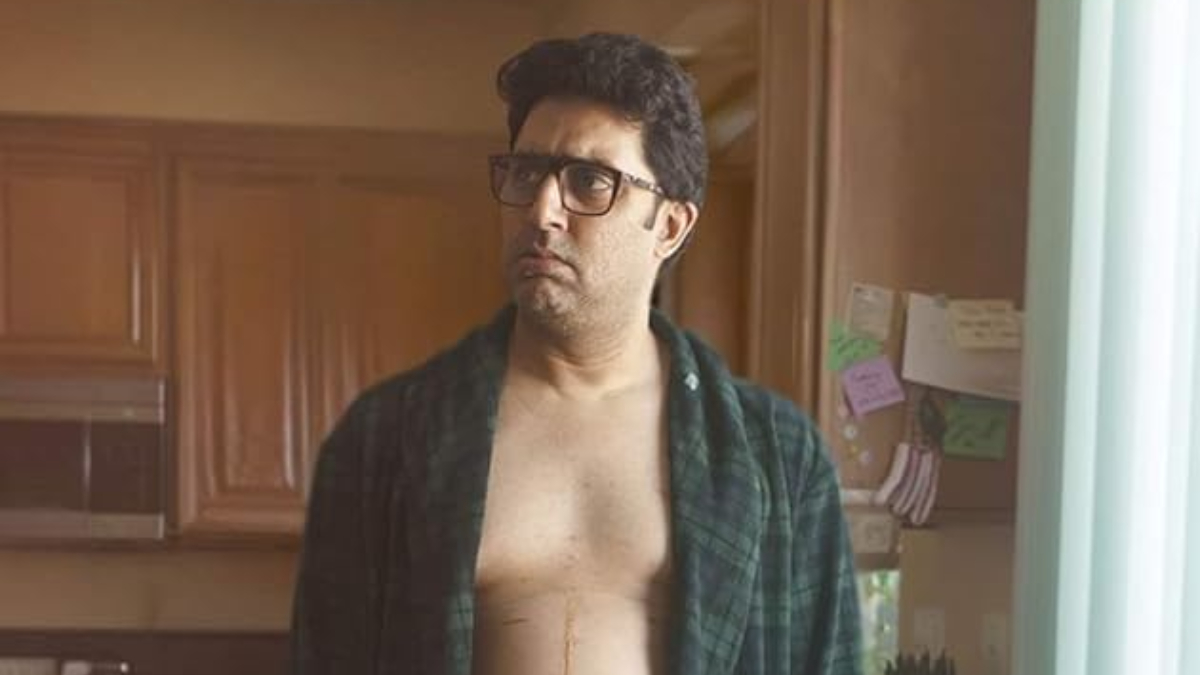Cast: Abhishek A Bachchan, Ahilya Bamroo, Johnny Lever, Jayant Kripalani, Pearle Dey Kristin Goddard
Director: Shoojit Sircar
Language: Hindi/English
It’s difficult to describe Shoojit Sircar and the characters he brings to life on screen. Just like that classic line about a box of chocolates in the 1994 weepie Forrest Gump, the filmmaker is truly unpredictable. Many directors infuse their own personality to their creations but for Sircar, every story is so different and unique, it’s hard to tell what and how he’s in real life. For someone who follows Yahaan with Vicky Donor and then goes on to make October and Piku, he could be a man with different personalities. He now makes a film called I Want To Talk.
Who is Arjun Sen?
This film stars Abhishek Bachchan as Arjun Sen. He’s terminally ill but it’s not going to be easy to put together in words what all he goes through in the film’s 122 minutes of running time. Every second feels like eternity when you have the thought of fading away from the world, maybe that’s why just like October, Sircar establishes Sen’s journey with a sedate pace. For many, it could be a slog. Bachchan gets into his messiest role yet. He may not be as cantankerous as his father was in Piku, but he’s not instantly likable either. He’s from marketing so obviously he talks a lot, and when his throat gets into cancer, the one thing he does best is taken away from him. And we get a fragile and frustrating father-daughter relationship here too.
Ahilya Bamroo as Bachchan’s grown-up daughter does a fine job of understanding his dad’s anxiety and her own complexities. The one scene that stands out is when she makes her father drive to her mother’s home twice when she gets the wrong pair of shoes. Daddy cool loses his cool but his daughter overpowers him by saying she didn’t choose this life for herself, their divorce did. To critique a film like I Want To Talk becomes difficult, especially when there are multiple montages of those chilling hospital close-ups. Even when Bachchan sends video notes to his daughter every time he has a surgery, the mind is conflicted whether to tilt towards hope or horror.
To irony, with love
The film is seen through Abhishek Bachchan’s eyes, and heard through his words. Those multiple voice-overs are justified since that’s the only time he can speak fluently. By the time we reach to his 20th surgery, his mouth has widened and he can barely talk. It’s ironic that for all the leisurely time Sircar takes to immerse us into Arjun’s head and heart, hospital and hope, and to an extent horror, he stages two death scenes in quick succession. The finale too feels rushed and little stretched because by this time, we know this is a man that cannot die. Johny Lever, (underutilized but beautifully understated) wittily sums up the film and the character’s spirit- Either you die or you don’t die, there’s nothing like could’ve died.
There’s another aching irony about this film. Arjun’s companion who fortifies him to give life another shot is the one who dies by suicide, as per the conversations that we listen to. And that’s the only time we see Arjun’s eyes filled with tears. Here’s a man who braved all obstacles with humor but broke down when he lost a friend who instilled life in him. Nobody knows how and why it happened. And that’s what Shoojit Sircar does. He refuses to give easy answers and access, and yet succeeds in getting a reaction out of you. And those montages and moments filed with silences, he does that really well, especially here, in a film titled I Want To Talk. Irony number three.
Rating: 3 (out of 5 stars)
I Want To Talk releases in cinemas on November 22
Working as an Entertainment journalist for over five years, covering stories, reporting, and interviewing various film personalities of the film industry
)